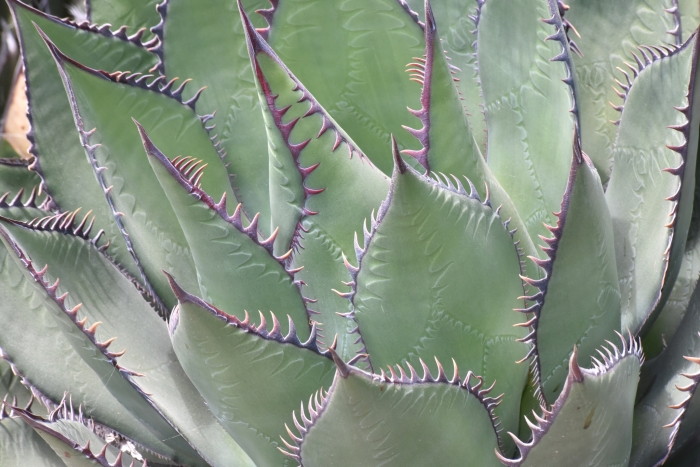Shaw’s Agave
(Agave shawii)
Shaw’s Agave (Agave shawii)
/
/

Don Loarie
CC BY 4.0
Image By:
Don Loarie
Recorded By:
Copyright:
CC BY 4.0
Copyright Notice:
Photo by: Don Loarie | License Type: CC BY 4.0 | License URL: http://creativecommons.org/licenses/by/4.0/ | Rights Holder: Don Loarie | Publisher: iNaturalist | Date Created: 2016-08-11T13:09:55-07:00 |


















































Estimated Native Range
Summary
Agave shawii, commonly known as Shaw’s Agave, is a very slow-growing, small-to-medium-sized succulent native to coastal sage scrub and chaparral habitats of southwestern California and northwestern Baja California, as well as the Baja California Desert. This rosette-forming plant features glossy, green leaves with toothed margins and a terminal spine. Shaw’s Agave reaches a height of 2-3 feet (0.6-0.9 meters) and a similar width. After several years, it expends its energy to produce a towering flower stalk up to 10 feet (3 meters) tall, with yellowish flowers that bloom from September to May. The flowering rosette dies post-bloom, but the species perpetuates through clonal pups.
Shaw’s Agave is valued for its architectural form and is used in cactus and succulent gardens, containers, and for drought-tolerant and wildlife gardens. It is particularly suited for coastal gardens due to its tolerance of salty air and soil conditions. While it thrives in full sun along the coast, it benefits from partial shade in hotter inland valleys. The plant prefers sandy loam soil with good drainage and requires very low water once established, making it an excellent choice for water-wise gardening. It is virtually disease-free except for occasional scale insects. When grown in suitable conditions, Shaw’s Agave is a low-maintenance plant that adds a dramatic accent to the landscape. However, care should be taken to plant it away from foot traffic due to its sharp spines. It is not recommended for desert cultivation in areas like Las Vegas but is well-suited to coastal regions from San Diego to San Francisco.CC BY-SA 4.0
Shaw’s Agave is valued for its architectural form and is used in cactus and succulent gardens, containers, and for drought-tolerant and wildlife gardens. It is particularly suited for coastal gardens due to its tolerance of salty air and soil conditions. While it thrives in full sun along the coast, it benefits from partial shade in hotter inland valleys. The plant prefers sandy loam soil with good drainage and requires very low water once established, making it an excellent choice for water-wise gardening. It is virtually disease-free except for occasional scale insects. When grown in suitable conditions, Shaw’s Agave is a low-maintenance plant that adds a dramatic accent to the landscape. However, care should be taken to plant it away from foot traffic due to its sharp spines. It is not recommended for desert cultivation in areas like Las Vegas but is well-suited to coastal regions from San Diego to San Francisco.CC BY-SA 4.0
Plant Description
- Plant Type: Succulent
- Height: 2-3 feet
- Width: 2-3 feet
- Growth Rate: Slow, Moderate
- Flower Color: Yellow
- Flowering Season: Spring, Summer
- Leaf Retention: Evergreen
Growth Requirements
- Sun: Full Sun, Part Shade
- Water: Very Low, Low
- Drainage: Medium, Fast
Common Uses
Bank Stabilization, Bee Garden, Bird Garden, Drought Tolerant, Fire Resistant, Hummingbird Garden, Low Maintenance, Potted Plant, Rabbit Resistant, Rock Garden, Salt Tolerant, Showy Flowers
Natural Habitat
Native to coastal sage scrub and chaparral habitats of southwestern California and northwestern Baja California, as well as the Baja California Desert
Other Names
Common Names: Shaw’s Agave, Maguey Primavera
Scientific Names: , Agave shawii, Agave shawii var. shawii,
GBIF Accepted Name: Agave shawii Engelm.